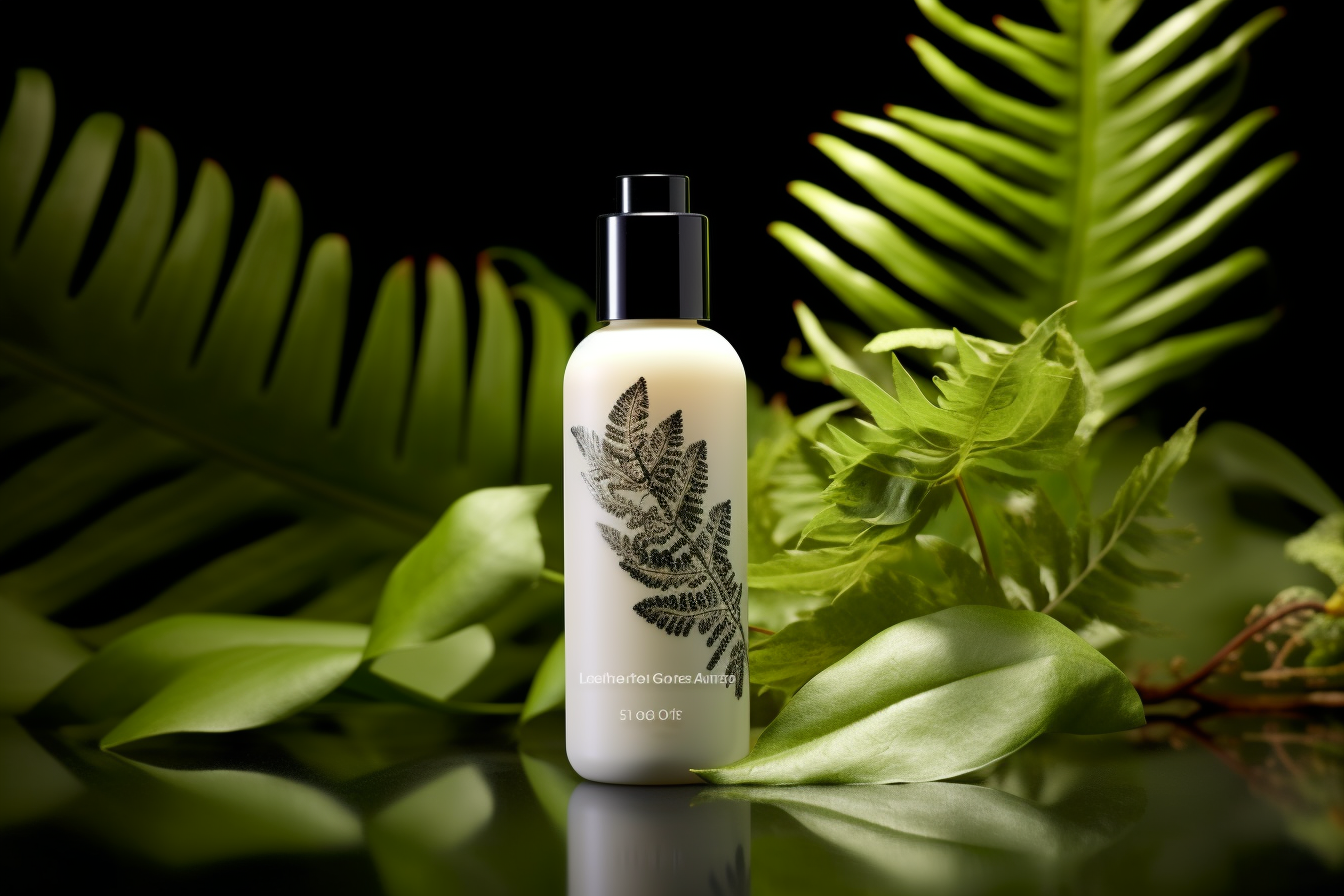Key Takeaways
- A clean and healthy scalp is essential for healthy hair growth
- Hair care products that focus on strands can cause issues for the scalp, and ingredients should be checked
- Regular washing, massage, and exfoliation of the scalp are beneficial
- Choosing less harsh chemicals and following salon hair care practices can lead to better results.
Hair Growth Basics
 Hair growth is dependent on the health of the scalp, as it is the site where hair follicles are rooted and nourished. The scalp provides the necessary nutrients and oxygen to the hair follicles, which then undergo three main stages of growth: anagen, catagen, and telogen.
During the anagen phase, the hair actively grows and can last for several years. The catagen phase is a transitional stage where the hair follicle shrinks and prepares for the resting phase. The telogen phase is the resting phase where the hair falls out and new hair begins to grow.
To ensure healthy hair growth, it is crucial to provide the hair with proper nutrition. A balanced diet rich in vitamins and minerals, such as iron, zinc, and vitamins A and C, can promote healthy hair growth. Additionally, consuming enough protein is essential for the formation of keratin, the main component of hair.
Hair care products, such as shampoos and conditioners, can also provide nourishment to the hair. Look for products with ingredients like biotin, keratin, and collagen to support healthy hair growth.
Hair growth is dependent on the health of the scalp, as it is the site where hair follicles are rooted and nourished. The scalp provides the necessary nutrients and oxygen to the hair follicles, which then undergo three main stages of growth: anagen, catagen, and telogen.
During the anagen phase, the hair actively grows and can last for several years. The catagen phase is a transitional stage where the hair follicle shrinks and prepares for the resting phase. The telogen phase is the resting phase where the hair falls out and new hair begins to grow.
To ensure healthy hair growth, it is crucial to provide the hair with proper nutrition. A balanced diet rich in vitamins and minerals, such as iron, zinc, and vitamins A and C, can promote healthy hair growth. Additionally, consuming enough protein is essential for the formation of keratin, the main component of hair.
Hair care products, such as shampoos and conditioners, can also provide nourishment to the hair. Look for products with ingredients like biotin, keratin, and collagen to support healthy hair growth.
Scalp Care Tips
Exfoliating the scalp using a scalp scrub can improve the overall condition of the head. Dead skin cells, oil, and product build-up can clog hair follicles and prevent hair growth. By exfoliating the scalp once a week, you can remove these impurities and promote healthy hair growth. However, it’s important not to over-exfoliate, as this can cause irritation and damage to the scalp. A gentle scalp scrub can help to remove impurities without causing harm. In addition to exfoliating, using massage techniques and natural remedies can also benefit scalp health. Massaging the scalp can increase blood flow to the hair follicles, promoting healthy hair growth. Natural remedies such as tea tree oil, aloe vera, and apple cider vinegar can help to soothe an itchy or irritated scalp, and reduce dandruff. It’s important to choose scalp care products that are free from harsh chemicals, and to follow a regular hair washing routine to maintain a healthy scalp. By taking care of your scalp, you can improve the overall health and appearance of your hair.| Natural Remedies | Benefits |
|---|---|
| Tea Tree Oil | Soothes an itchy or irritated scalp, reduces dandruff |
| Aloe Vera | Soothes and moisturizes the scalp |
| Apple Cider Vinegar | Balances pH levels, reduces buildup, and clarifies the scalp |
| Coconut Oil | Nourishes and strengthens hair, reduces split ends and breakage |
Premium Cosmetic Labs Insights
The cosmetics industry is a constantly evolving market that requires strategic planning and innovative thinking to create a lasting brand. In recent years, there has been a shift towards chemical-free products and sustainable packaging as consumers become more conscious of the impact of their choices on the environment. This trend has led to an increase in the popularity of natural skincare products that use plant-based ingredients and avoid harmful chemicals commonly found in traditional skincare products. Furthermore, the debate between chemical and natural skincare has become a key focus in the industry. While some argue that chemical ingredients are necessary to achieve certain results, others believe that natural ingredients are safer and more effective in the long-term. In response, many cosmetics manufacturers are now offering products that use a combination of natural and chemical ingredients to provide the best of both worlds. Additionally, the use of sustainable packaging, such as glass and recycled materials, has become a priority for many brands as they strive to reduce their carbon footprint and promote environmental stewardship.Can Private Labeling Help Boost Sales of Scalp Care Products?
Private labeling is an effective strategy to boost retail profits with private labeling for scalp care products. By offering exclusive brands, retailers can differentiate themselves from competitors and attract more customers. With customized packaging and branding, private labeling allows retailers to create a loyal customer base and increase sales. Additionally, this approach offers flexibility in pricing, promotions, and marketing, ultimately enhancing the overall profitability of scalp care products.
Are Premium Cosmetic Labs’ Professional Hair Products Effective for Scalp Care?
Premium hair products for salons, crafted by Professional Hair Labs like Premium Cosmetic Labs, have proven to be highly effective in scalp care. These exceptional hair products are formulated with top-quality ingredients and innovative techniques, ensuring they deliver maximum benefits for scalp health. Trust in the expertise of Professional Hair Labs when it comes to nourishing and maintaining a healthy scalp.
Frequently Asked Questions
What are some common misconceptions about scalp care?
There are several common misconceptions about scalp care that people should be aware of. One of these misconceptions is that a good lather is indicative of a high-quality shampoo, when in reality, the pH balance of the product is more important. Additionally, many people believe that rubbing oil into the scalp is beneficial, when in fact it can clog pores and cause hair to become greasy. Instead, oil should be applied to the hair itself. Another misconception is that exfoliating the scalp is unnecessary, when in reality, this can help remove dead skin cells and promote healthy hair growth. Finally, many people overlook the benefits of scalp massage, which can improve blood flow and help distribute natural oils throughout the hair. When it comes to choosing the best scalp care products, it is important to focus on ingredients that are gentle and effective, such as sulphates, ketoconazole, or zinc pyrithione for oily scalps.How can scalp care affect hair loss?
Scalp care can have a significant impact on hair loss. Studies have shown that regular scalp massage can increase blood flow to the scalp, which in turn can stimulate hair growth. Additionally, using essential oils such as peppermint or rosemary can also promote hair growth and improve scalp health. However, it is important to note that scalp massage and essential oils should not be used as a sole solution for hair loss, as there may be underlying medical conditions that require professional treatment. It is also important to be cautious when using essential oils, as some can cause allergic reactions or skin irritation. Consulting with a dermatologist or trichologist can provide personalized recommendations for scalp care and hair loss prevention.Are there any natural remedies that can be used for scalp care?
 DIY remedies and essential oils are popular natural alternatives for scalp care. Essential oils such as tea tree oil, peppermint oil, and lavender oil have antifungal and antibacterial properties that may aid in treating scalp conditions like dandruff and itchiness.
Additionally, a mixture of apple cider vinegar and water can help balance the pH levels of the scalp, which may help reduce oiliness and improve the overall health of the scalp. Applying aloe vera gel to the scalp can also soothe irritation and inflammation.
However, it is important to note that natural remedies may not work for everyone, and it is essential to do a patch test before applying any DIY remedy to the scalp to avoid allergic reactions or adverse effects.
DIY remedies and essential oils are popular natural alternatives for scalp care. Essential oils such as tea tree oil, peppermint oil, and lavender oil have antifungal and antibacterial properties that may aid in treating scalp conditions like dandruff and itchiness.
Additionally, a mixture of apple cider vinegar and water can help balance the pH levels of the scalp, which may help reduce oiliness and improve the overall health of the scalp. Applying aloe vera gel to the scalp can also soothe irritation and inflammation.
However, it is important to note that natural remedies may not work for everyone, and it is essential to do a patch test before applying any DIY remedy to the scalp to avoid allergic reactions or adverse effects.
